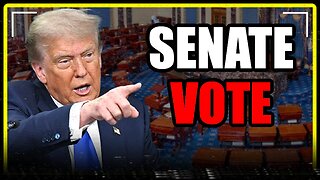Premium Only Content

Streamlining ISF Compliance: Best Practices for Effective Entry Validation
ISF Checklist || 805-970-7918 || [email protected] || www.isfchecklist.com
In this video, we discussed the best practices for effective entry validation and streamlining ISF (Importer Security Filing) compliance in the context of customs brokerage.
We started by defining ISF as a mandatory filing requirement implemented by US Customs and Border Protection (CBP) to enhance cargo security. Importers are required to submit ISF information at least 24 hours prior to the cargo being loaded onto a vessel bound for the United States.
The first best practice we discussed was obtaining a customs bond. A customs bond serves as a financial guarantee between the importer and the CBP, ensuring payment of duties, taxes, and any penalties. By obtaining a customs bond, importers can expedite clearance and avoid delays.
The second best practice was leveraging technology. Using advanced software and technology solutions can greatly streamline the ISF compliance process. Automated systems can help validate and submit ISF data accurately and efficiently, provide real-time alerts and notifications, and ensure adherence to filing deadlines.
Conducting regular compliance audits was highlighted as the next best practice. By reviewing import processes, documentation, and procedures, importers can identify gaps or areas of improvement. These audits help maintain compliance, reduce the risk of penalties, and ensure accurate import data submission.
Staying updated on customs regulations was identified as the fourth best practice. Importers need to stay informed about any changes that may impact their shipments, such as import restrictions, tariff rates, or documentation requirements. This helps avoid compliance pitfalls and address potential issues proactively.
Effective communication with all stakeholders involved in the import process was emphasized as another important best practice. This includes maintaining open lines of communication with customs brokers, freight forwarders, suppliers, and others. Clear communication ensures alignment on requirements, deadlines, and potential issues, facilitating efficient entry validation.
Lastly, thorough documentation review was highlighted as a crucial best practice. Importers need to review shipping documents, such as commercial invoices and packing lists, to ensure completeness and accuracy. Addressing any discrepancies or missing information promptly avoids clearance delays and streamlines the import process.
Implementing these best practices can enhance the customs brokerage process, improve compliance, and streamline ISF validation. For more information and resources, visit our website at isfchecklist.com. Stay tuned for future videos where we will continue to explore customs brokerage and international trade.
#usimportbond #isfcustomsbroker #uscustomsclearing #isfentry
Video Disclaimer Here: This video is purely educational and has no ties with the US government.
00:59 - Customs Bond: Obtain a customs bond to ensure financial guarantee between importer and CBP, expediting clearance and avoiding delays in the import process.
01:20 - Technology: Leverage advanced software and technology solutions for streamlined ISF compliance, accurate data submission, real-time alerts, and notifications.
01:57 - Compliance Audits: Conduct regular compliance audits to identify gaps, maintain high compliance levels, reduce penalties, and ensure accurate import data submission.
02:30 - Stay Informed: Stay updated on customs regulations, including import restrictions, tariff rates, and documentation requirements to proactively address potential issues and avoid compliance pitfalls.
-
 LIVE
LIVE
MattMorseTV
3 hours ago $73.25 earned🔴Senate VOTES to END the SHUTDOWN.🔴
15,705 watching -
 LIVE
LIVE
Barry Cunningham
1 day agoBREAKING NEWS: DID PRESIDENT TRUMP MAKE A HUGE MISTAKE? SOME SUPPORTERS THINK SO!
1,883 watching -
 LIVE
LIVE
SpartakusLIVE
1 hour agoSOLOS on WZ || #1 Challenge MASTER is BACK in Verdansk
440 watching -
 LIVE
LIVE
megimu32
42 minutes agoOFF THE SUBJECT: Chill Stream, Music & Fortnite Chaos 🎹🎮
71 watching -
 2:24:09
2:24:09
vivafrei
10 hours agoEp. 290: Canada's Darkest Week; Comey Fix is In! Tariffs, SNAP, Hush Money Win & MORE!
168K102 -
 LIVE
LIVE
EricJohnPizzaArtist
5 days agoAwesome Sauce PIZZA ART LIVE Ep. #68: DDayCobra Jeremy Prime!
222 watching -
 LIVE
LIVE
meleegames
1 hour ago32X Roulette - 30 Years. 32 Games. 32X.
48 watching -
 LIVE
LIVE
BubbaSZN
53 minutes ago🔴 LIVE - FARTNITE W/ @CATDOG & @CHEAP
31 watching -
 2:54:01
2:54:01
LadyDesireeMusic
4 hours ago $5.07 earnedCookin & Convo - Potato Soup, Ham & Apple Pie
21.3K2 -
 27:05
27:05
Robbi On The Record
6 hours ago $4.19 earnedThe Secret to Aging Strong: What Your Body’s Been Trying to Tell You
11.6K4